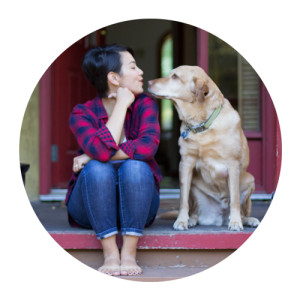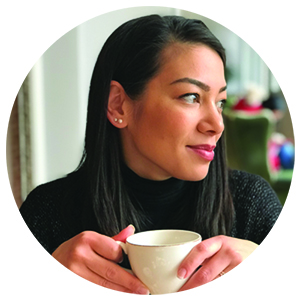Hey Friends,
As you may or may not know, I am partnering with SPUD.ca to tell you about how we DO food. I told you about my ridiculous food journey, gave you some tips on how to stock your pantry and form healthy eating habits and this week I want to demystify healthy and responsible food consumption.
GMO, Certified Organic, Fair Trade, 100 mile diet, Vegetarian, Vegan, Raw food diet – it’s hard to keep everything straight and can seem impossible to get it right. The well of knowledge on this stuff is deep so I am going to give it to you as simply as possible so that you can make informed, healthy and responsible consumer choices.
The Better World Handbook lays out seven foundations of a better world.
- Economic Fairness
- Comprehensive Peace
- Ecological Sustainability
- Deep Democracy
- Social Justice
- Simple Living
- Revitalized community
I would argue that our decisions around food can affect every single one of these areas and therefore, these areas should in turn, affect our food consumption.
Let’s start with the first foundation – Economic Fairness. The United Nations Food and Agriculture Organization estimates that out of the 7.3 billion people on earth about 795 million people suffered from chronic undernourishment in 2014-2016. Almost all of these people were in developing countries. But why? The world produces enough food to feed everyone. The principle problem however, is that many people still do not have enough money to purchase food or to purchase land to grow the food. Did you know that there are just over 1 billion poor people living in developing countries who live on $1.25 a day or less!
This then, begs the question of WHY are there so many poor people? It is a surprise to few that only a small minority hold control over resources and income is based on military, political or economic power (Foundation number four – Deep Democracy). Which leads to foundation number two – Comprehensive Peace. Conflict-affected residents, such as those in Pakistan, Nigeria and Somalia account for 21% of the undernourished population. From here, a viscous cycle is created because those who are malnourished tend to be smaller, have poor health and low levels of energy reducing their ability to work.
Foundation number three, Ecological Sustainability also plays into the hunger numbers as climate change is also a factor in undernourishment. Increasing drought, flooding and changing climatic patterns require a constant shifting of crops and farming practices. This article in the Guardian claims that Global warming causes 300,000 deaths a year!
So many of these issues however can be address and dare I say helped by holding to the last three foundations: Social Justice, or caring for the marginalized, Simple Living, or not over indulging and Revitalized community, or a renewed sense of compassion.
I hope this gives you a better idea of how everything is connected. The things you buy and the way you consume play an important role on the world stage. Here, let me break it down a little bit more for you:
When I said that it is hard to get it right, what I really meant is that you will never get it right. As you can see there are a lot of issues, cheque books to be balanced and mouths to feed. To give you a bit more perspective however, I want to introduce you to two of my friends.
I talked about Stacey in my Food Journey post.. She was my first vegan friend. Now, a decade later, we are still friends, she is still vegan and is raising her kids to make healthy choices. I asked Stacey about why she became a vegan and how she balances food choices in a home where her husband is not a vegan and still enjoys a good steak once an a while. Here is what she said,
“I’ve been vegan for over 8 years. I was vegetarian for a couple years before that so making the switch was easy. It was a month before my wedding and I thought it was a good excuse to be even healthier. And it stuck. Once you see the documentaries on animal cruelty and read a few studies on processed foods causing cancer- which took my mom’s life- it’s easy to give up dairy and eggs.
My kids are about 95% vegan. They try what they like seeing as my husband will eat minimal amounts of meat/fish & dairy. They make educated choices based on the information provided. My oldest went to a local dairy farm last year with his 3 year old preschool class and when asked if the cows looked happy, he simply and quite honestly said ‘no’. He’s old enough to understand they should eat grass in the sunshine, chill with their cow friends and their milk is for their babies, not us- we’re not cows! We talk daily about our food and the energy it gives us to grow big and strong. The importance of eating all the colours in the garden. (Which we just planted in the yard)
My greatest concern would be the older they get and the busier we become, less organic, local & whole food will be consumed. Right now only a small % of packaged food is eaten, usually in the form of pasta and cereal. But it’s easy to make that Costco trip and come home with boxes of ‘convenience food’. Although, we can’t live without tubs of hummus! I’d say it becomes more frustrating when places don’t have vegan options like a coffee shop. Have a jug of organic soy or almond milk and maybe one or two vegan treats. As picky as vegans are, we’re happy with whatever option available – we just want to go out and eat like the rest of them. Just being kinder in the process….”
The other friend I want to introduce you to is Keira. Keira is like me – not necessarily vegan but food conscious. She also has a lovely blog worth checking out. www.keira-anne.com. I asked Keira a few questions about how she makes decisions around food, what is important to her and what drives her to eat more than Mac and Cheese.
1.) What influences you most as a food consumer? For example, ethical trade, sustainability, GMO free, hormone free, pesticide free, quality, price, accessibility (available anywhere even 7-11), buying local or calorie count.
A few different factors influence my food choices, but it’s usually a trifecta between GMO-free, fair trade, and price. If something’s got to give on one of those, I’ll usually forego the price. Food and where we get it from is so directly linked with the health of our planet. I think that as citizens of this planet, we have an obligation to be mindful about how our small choices affect the whole. What we choose can have either a negative or positive impact on those in other countries who are growing to support their families. Choosing fair/ethical trade whenever possible empowers those families and that’s something I can get behind.
If I do purchase meat or dairy, which I very rarely buy, organic and ethically-raised are key. Same with eggs. It’s been a gradual process for me, and I feel that what most people value shows in how we consume food and exactly what food we choose to eat. That’s not to say I don’t have moments of weakness and down an entire bag of potato chips, but I think that the majority of the time, I’m a conscious consumer.
2.) Is there a documentary or book that has had a particularly significant impact on the way you consume food?
I have watched a few documentaries over the years. I think the one that had the greatest impact on me was Earthlings, but Food Inc. also gives you something to chew on in terms of how corporations have a grip on the food supply in North America.
3.) Have you always eaten consciously? Was there a sudden change – if so, what caused it, or was it a gradual process?
As I mentioned, it’s definitely been a gradual process for me. When I was single and living on my own, mac and cheese was on constant rotation in my kitchen. I did try to choose organic as much as possible, but it hadn’t clicked with me much at that point. Once I got married and realized that I was suddenly feeding two (I love to cook!), I started to gather awareness over what I was putting in our bodies. So often we treat our bodies as, essentially, trash cans! So as I developed awareness, I started to do more research and worked on educating myself.
4.) What is your secret indulgence?
My secret indulgence? There are too many to choose from! I love food! Lately I can’t get enough of Hardbite’s Rock Salt and Vinegar chips, and I don’t even like salt and vinegar chips! AlterEco’s dark chocolate with mint is perfection, and I’ll never pass on a good glass (or three) of red wine. Oh and Mexican food! Don’t even get me started… I could eat that cuisine morning, noon, and night. Okay – one more. Burgers with lots and lots of relish.
As you can see, the journey is different for everyone and no one can jump right in and give their diet an 180 degree turnaround over night. It takes time and it takes being educated – we learn as we go right but knowing where our food comes from and how it got there is huge piece of the puzzle.
One of the great things about SPUD is that they get to know their vendors and make sure that not only are you the consumer getting the best possible product but that the process is all above board as well. Just check out this post on their twitter feed – who knew there could be so many benefits to goat milking technology?! (We buy Rockridge dairy products ) They also make making responsible consumer choices easy by having convenient labels, so you don’t have to be confused by all the hipster food labels we like to give things these days.
To wrap things up, I think that all that needs to be said is this – I just discovered AlterEco’s chocolate in the form of their dark salted burnt caramel and my chocolate world has been revolutionized. Go forth and eat fair trade chocolate.


















Leave A Reply